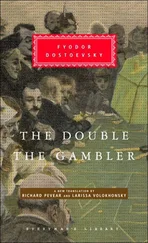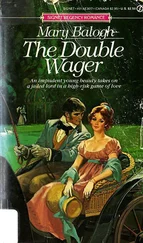“I guess she and Bobbie weren’t real close.”
“No, they weren’t. He ever mention any family at all?”
“Not a word,” Serena said, and her voice grew solemn, as if she were trying to conjure in her mind a family for Bobbie Crocker. “Not a single word.”
“What about that first night he came into the diner? Think back. When you were asking him if he had a place to go, what else did he say?”
Their food arrived, and Laurel could see that Serena was contemplating that August night when Bobbie had appeared at the counter with his duffel and a pocketful of change.
“Let me think,” she murmured. Her egg salad was orange with curry and sat like a globe on a palm-shaped leaf of iceberg lettuce. “You know, he did say one thing that might be important.”
“Uh-huh.”
“He said something about a guy he’d worked with at a magazine somewhere. Name was…Reese.”
“Was that his first name or his last?”
“I don’t know if he told me. But something about it is on the tip of my tongue.”
“Tell me.”
“This was, like, a year ago.”
“I know,” Laurel said, hoping she sounded patient.
“I’m going to say Reese was his first name. And…”
“And?”
“And you know what? He might have been living at Reese’s. After the hospital. That might be it.”
“Why would he have left?”
Serena was chewing the egg salad carefully. “They don’t put celery in it. We do. You have to have celery in your egg salad.”
“I agree,” she said politely. “Why do you think Bobbie moved out?”
“Maybe he was kicked out.”
“Bobbie kicked out? You don’t really believe that, do you?”
“Oh, not kicked out because he was a bad roomie or whatever. Maybe kicked out because he wasn’t helping with his share of the rent.”
“He would have been eighty years old! How much help could this Reese person have expected-especially if Bobbie came to him straight from the hospital?”
“People are cruel,” Serena said offhandedly. “You know that, Laurel.”
“But Bobbie was…old.”
She leaned forward in her chair, her chin over her plate. Her eyes grew wide and her words were soft but angry: “Old doesn’t matter. My dad shows up at my house when he’s eighty? I got a choice of giving him a room or letting him chill on the street? I can’t see me opening my doors. And I don’t think I’m a bad person. But cruel is as cruel does. Or whatever.”
Laurel thought about this. “I’m sure Bobbie never did anything to hurt Reese-at least not the way your father abused you.”
“I agree. I’m just saying, we don’t know. I think if you want to get the answer for sure, you got to find this Reese person.”
“Bobbie give any hints where he-”
“Or she. I keep saying he, but for all we know Reese could be a she.”
“Or she might live?”
“I’d start in Burlington -or the suburbs. Maybe Bobbie got from Waterbury to Burlington before he was homeless. Maybe he was released into the care of someone who lives around here.”
“That would be an irony.”
“Hey,” Serena said, studying a pair of beautiful young women their age in miniskirts-young public relations executives, Laurel guessed. “Life is all about irony. Irony and luck and…advantages. Why did I get a mom who lit out at first light and a dad who thought my head was a punching bag? Why did those two over there get parents who made sure they did their homework and then sent them to college? I’m not bitter. Really, I’m not. But I also know life isn’t always fair-and I have a feeling, my friend, that you know that just as well as I do.”
LAUREL LEFT WORK promptly at five that day, despite the reality that she had gotten so little done. But she wanted to get to the library in Burlington before the reference desk closed at six, because she was keenly interested in making a dent into the microfilms there or the hard copies of the old Life magazines.
The library only had bound volumes dating back to 1975, but it had microfilm all the way back to 1936. She was thrilled, and with an eager librarian’s help randomly selected a spool from 1960. Then she sat down at a carrel and began to scroll through images that ranged from a Woolworth’s lunch counter in Greensboro, North Carolina, to Charles de Gaulle boasting of the detonation of his country’s first nuclear bomb. She saw David Ben-Gurion and Nikita Khrushchev and an American U-2 reconnaissance plane. And there was a story about a fellow named Caryl Chessman, a man Laurel had never heard of but whose face gave her the chills because he was going to be executed for kidnapping and sexually assaulting two women a decade earlier. It sounded, based on the article, like he might have been innocent.
She tried to slide past the ads, but they were hypnotic: the mild cigarettes touted by singers and actors, the Air Force bombers used to sell automotive motor oil, the recipes that anchored the ads for canned soups and cake mixes and containers of Borden’s cottage cheese.
And, always, she squinted at the small type that occasionally-but only occasionally-ran up the sides or underneath the photos. Much to her disappointment, only a small fraction of the images actually had photo credits. She was probably up to May and almost out of time for the day when she discovered why. There, toward the front of the magazine, was a long, slender masthead rich with names, including the editors and the writers and the photographers.
And there he was: not Bobbie Crocker or Robert Buchanan. That would have sent her spinning like a top in her seat in her carrel. Instead, she saw what seemed to her at the moment to be the next best thing. Above a paragraph-long block of thirty photographers, an alphabetized litany that included Margaret Bourke-White and Cornell Capa and Alfred Eisenstaedt, was an assistant picture editor with the name of Marcus Gregory Reese.
BEFORE LEAVING the library, Laurel printed out the masthead so she would have the full list of names, and then she checked the Burlington phone book to find a phone number for Marcus Reese. He wasn’t listed. Nor was he in the Waterbury, Middlebury, or Montpelier areas. Then she went to the newspaper offices, a mere two blocks farther west on College Street. She was supposed to meet David at the movie theater at 6:45, but she was excited by what she had found and wanted to show him the copy of the masthead she had made.
He was on the phone in his office when she arrived, but it was apparent that the call was winding down, and so she slipped the masthead atop an unruly pile of papers on his desk and pointed at the photography staff. He nodded politely, but it was clear that the name Marcus Gregory Reese meant nothing to him. Only then did she realize there was no reason why it would. He didn’t know yet what she did; he hadn’t been with her when she’d had lunch with Serena. And so the moment he hung up she shared with him all that Serena had told her.
“Son of a gun,” he murmured.
“I couldn’t find Reese in the phone book, but I figured I’d Google him. And I want to use those research services you subscribe to here at the newspaper. Now that we have Bobbie’s Social Security number, let’s see what we can find.”
“We? Weren’t we going to a movie?”
Laurel paused. “This won’t take long.”
“It’ll keep,” he said, rising from his chair. “We should scoot.”
“Let me do this,” she said, blurting out the short sentence with a manic intensity that caught them both off guard.
For a moment, David said nothing. Then: “ Laurel, let it go for the night. Lighten up.”
“It’s important,” she said, unable to soften her tone.
“To whom?”
“To me. It’s important to me. I would think that would be enough.”
Читать дальше












